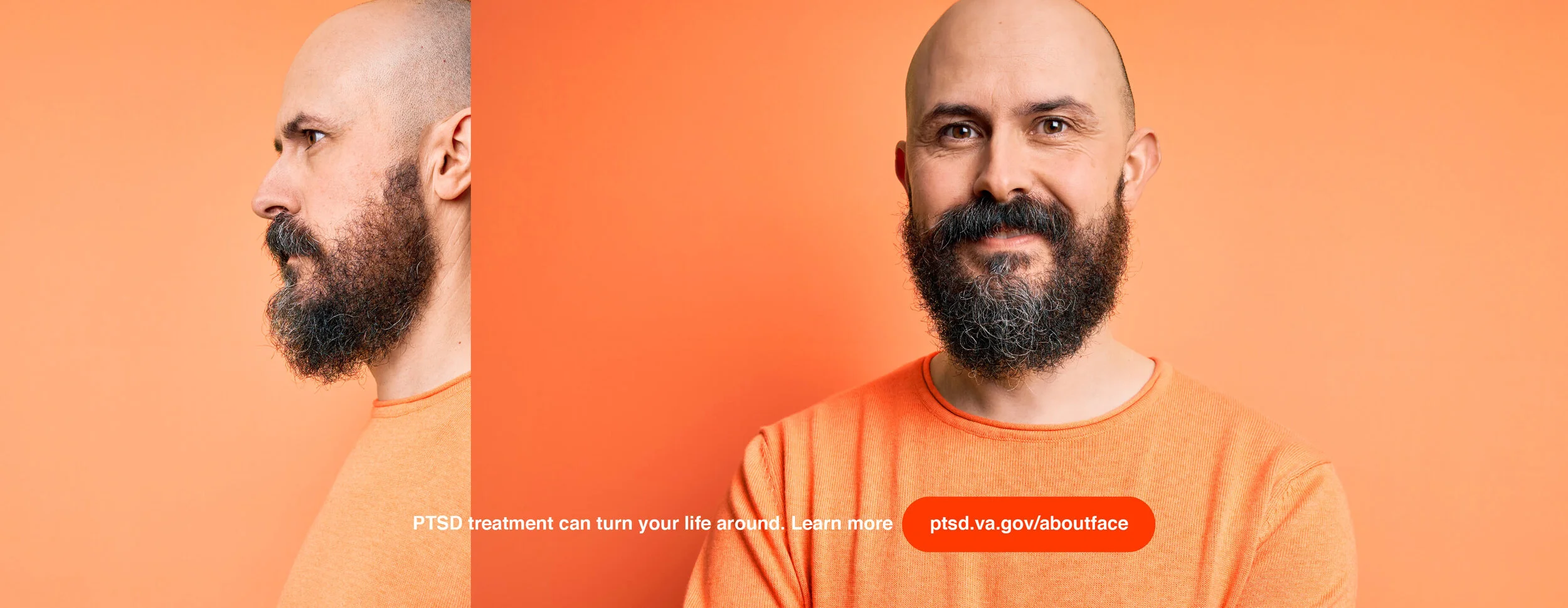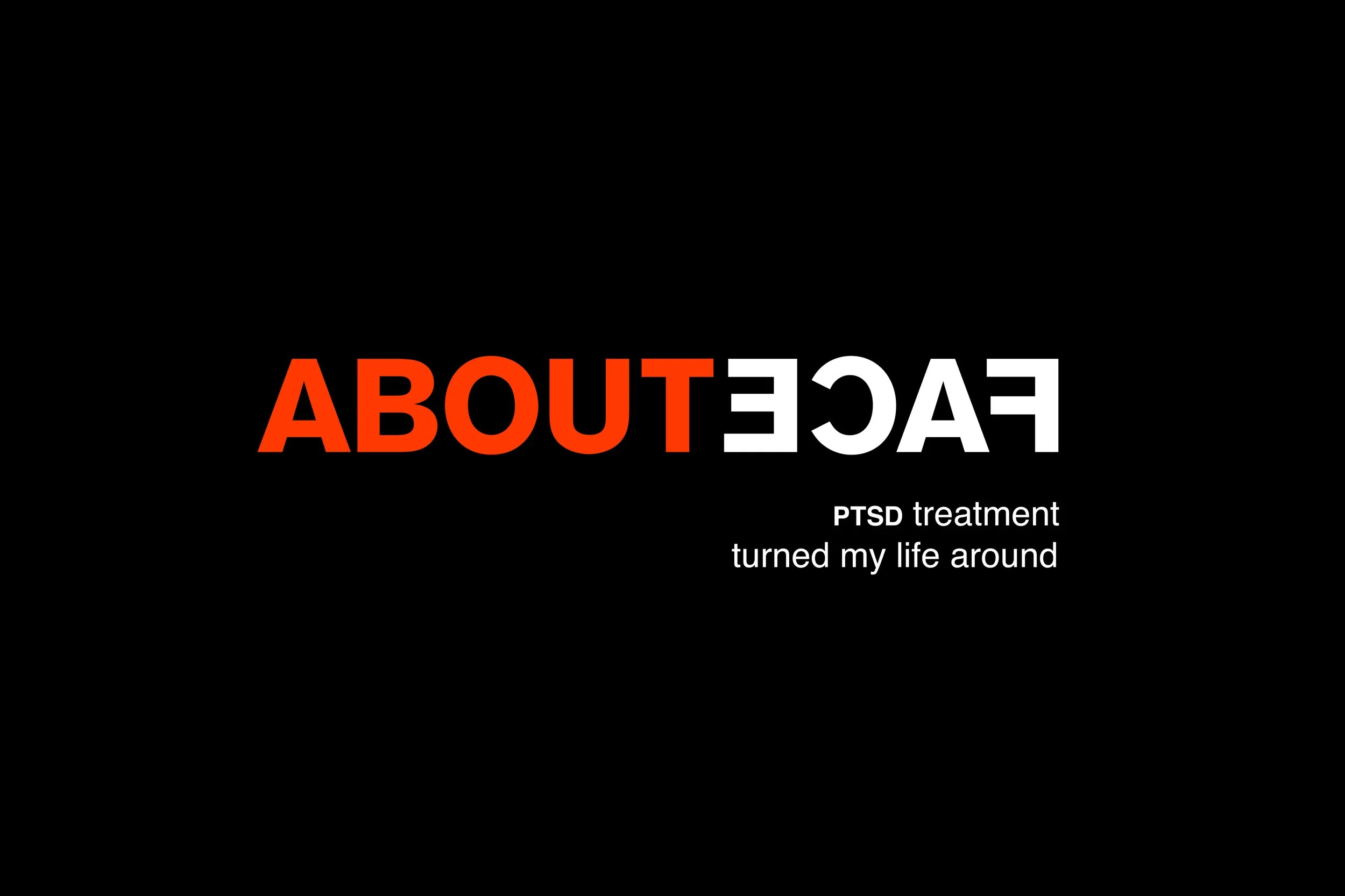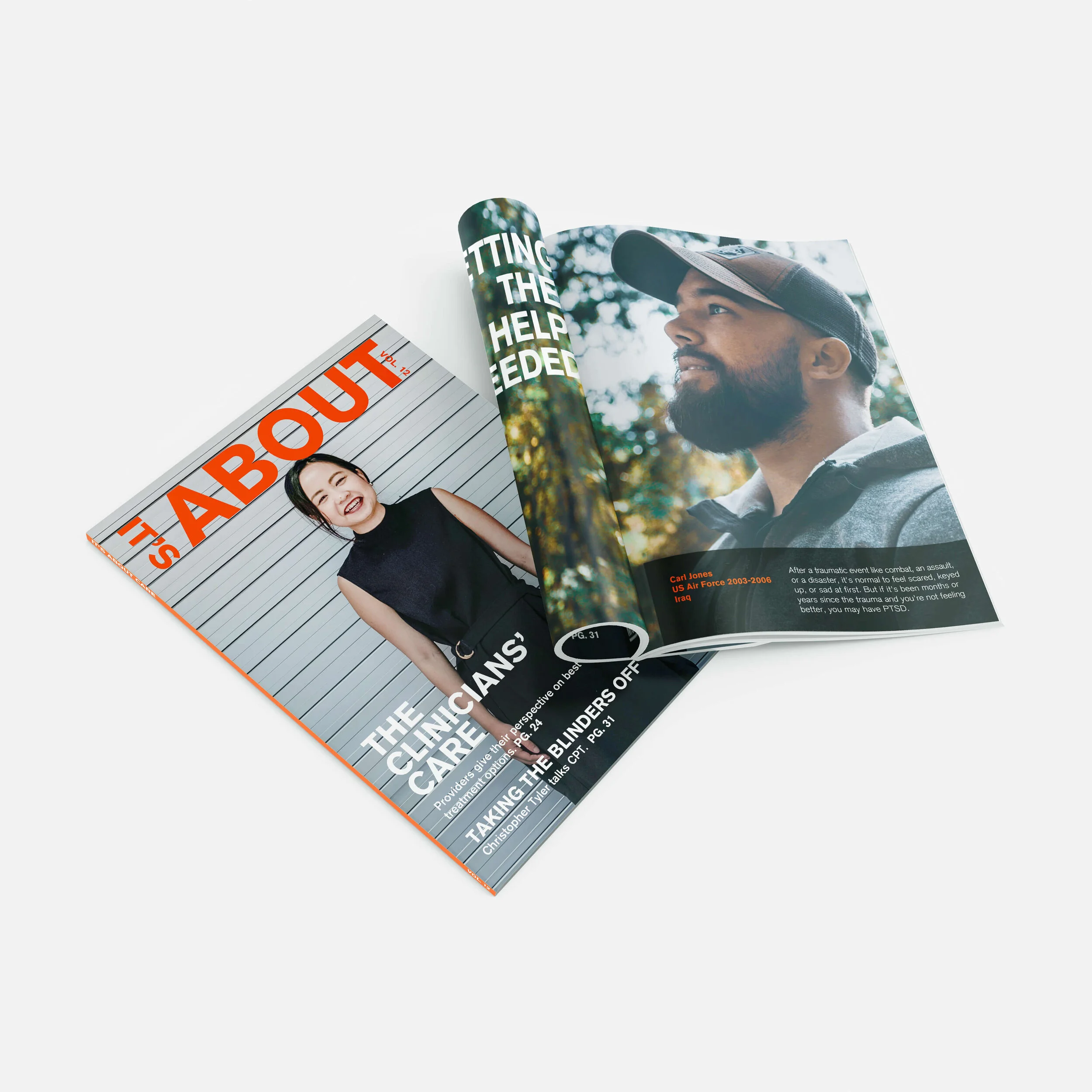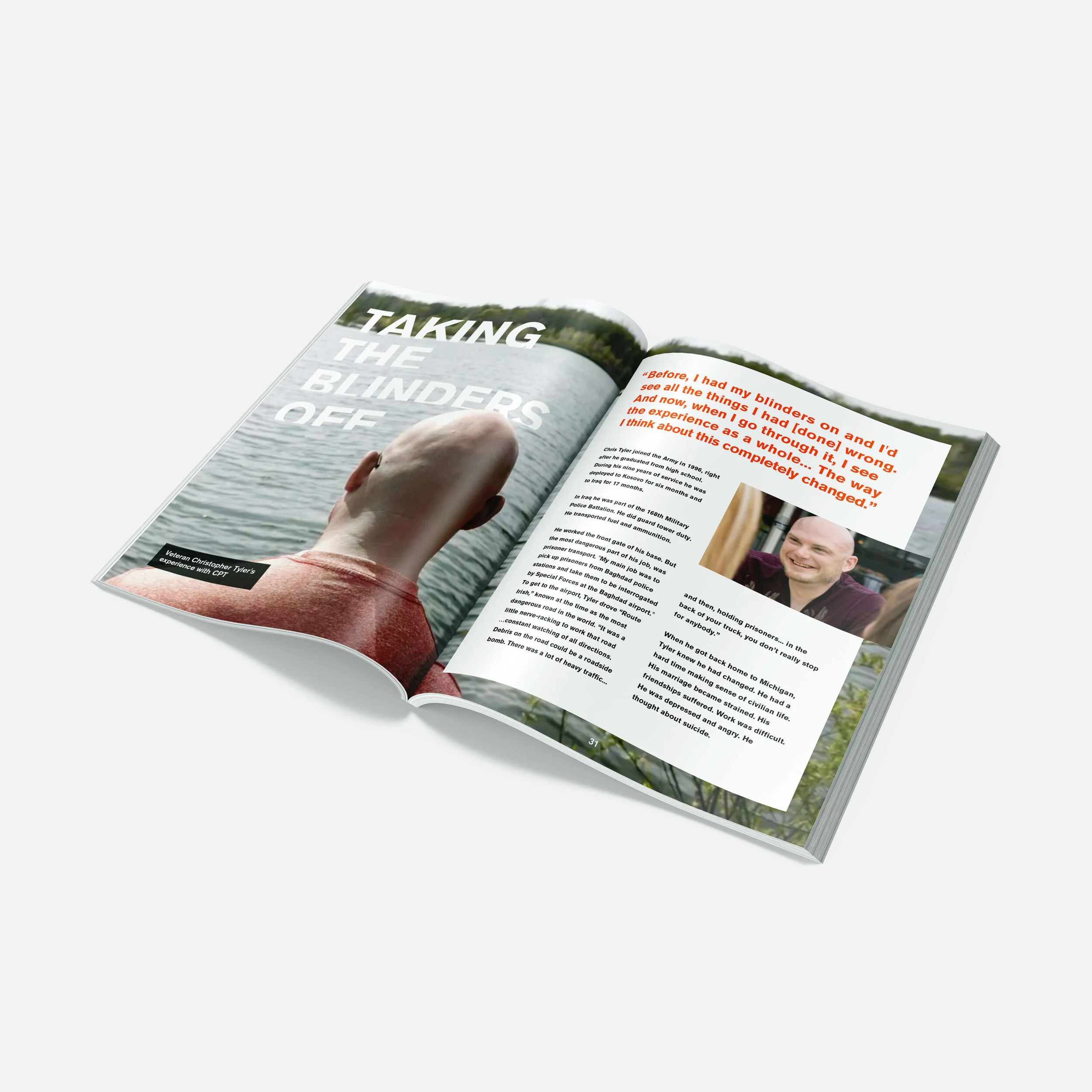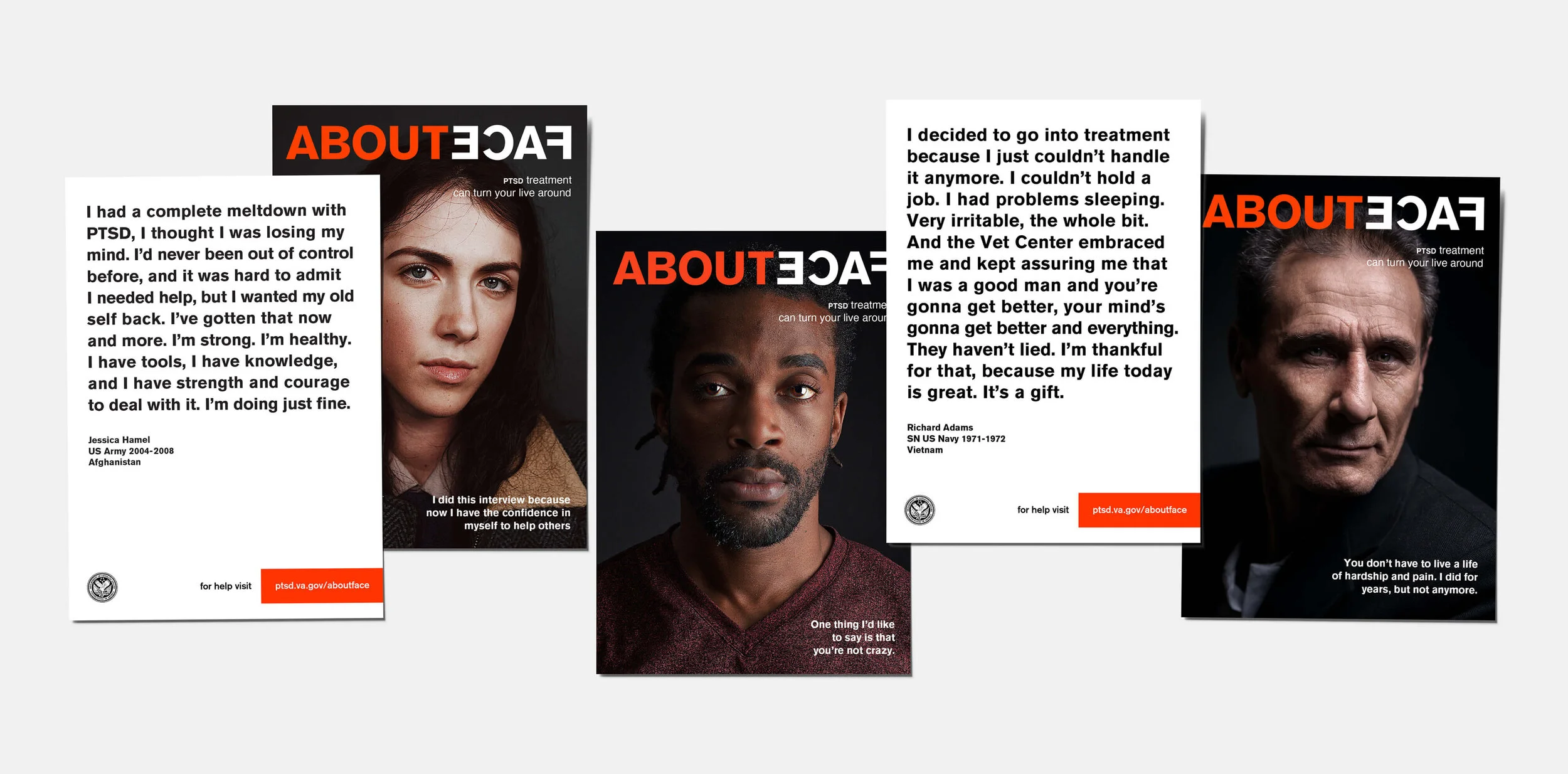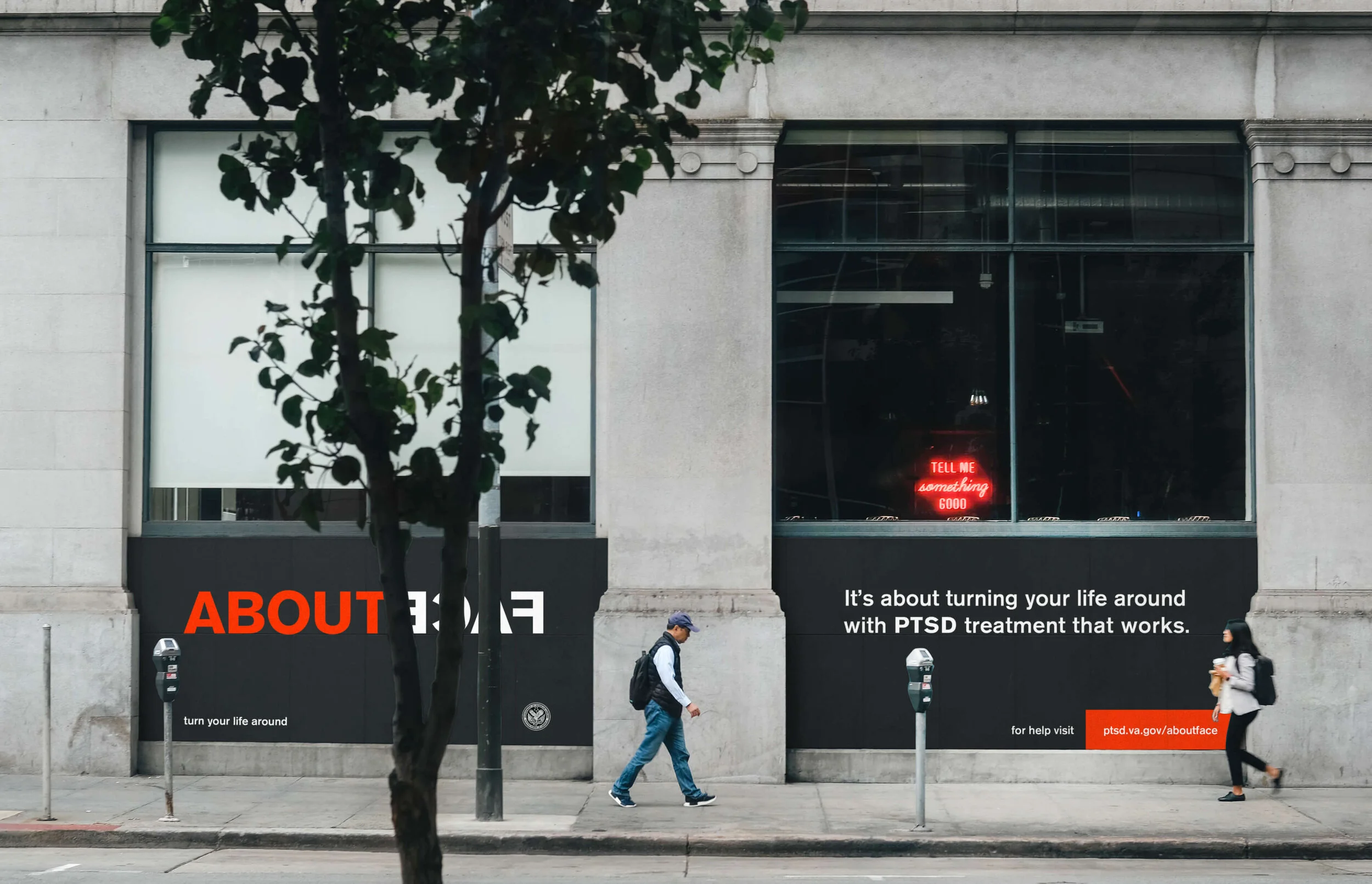About Face
Shaping how PTSD treatment can turn your life around.
AboutFace is a national campaign launched by the U.S. Department of Veterans Affairs’ National Center for PTSD—the world’s leading authority on post-traumatic stress research and education. Founded in 2010, the initiative serves a threefold mission: to raise awareness about PTSD and its symptoms, to confront the stigma surrounding it, and to encourage veterans to seek the high-quality care available to them through the VA.
Our role began with a simple, essential question: how can we help veterans feel seen—and supported—in a system they may not fully trust?
From that foundation, we named the initiative, developed the brand identity, and expanded the campaign vision—guiding rollout strategy across the website, testimonial videos, poster series, and supporting materials.
The Full 180°
The name About Face draws from a powerful military command: to turn 180 degrees in place. For veterans, it’s a familiar cue to shift direction—both physically and mentally. In this context, it becomes a call to action: PTSD treatment can help turn your life around.
The word “about” also functions as a spotlight—personalizing each story. It’s about your experience, your symptoms, your family, your future. Through the voices of real veterans, About Face centers empathy and transformation, one testimony at a time.
In tandem with brand strategy, we collaborated closely with the VA’s in-house team to develop a campaign launch video featuring real veteran testimonials. The film was screened in high-visibility venues across New England—including Boston’s Fenway Park—bringing the message directly into public view.
“The AboutFace initiative profoundly shows Veterans who may be struggling with PTSD that what they are facing is normal, many people are dealing with the same issues, and that help is available. It is my sincere belief and hope that AboutFace can help returning soldiers and Veterans.”
— Congressman Charles B. Rangel
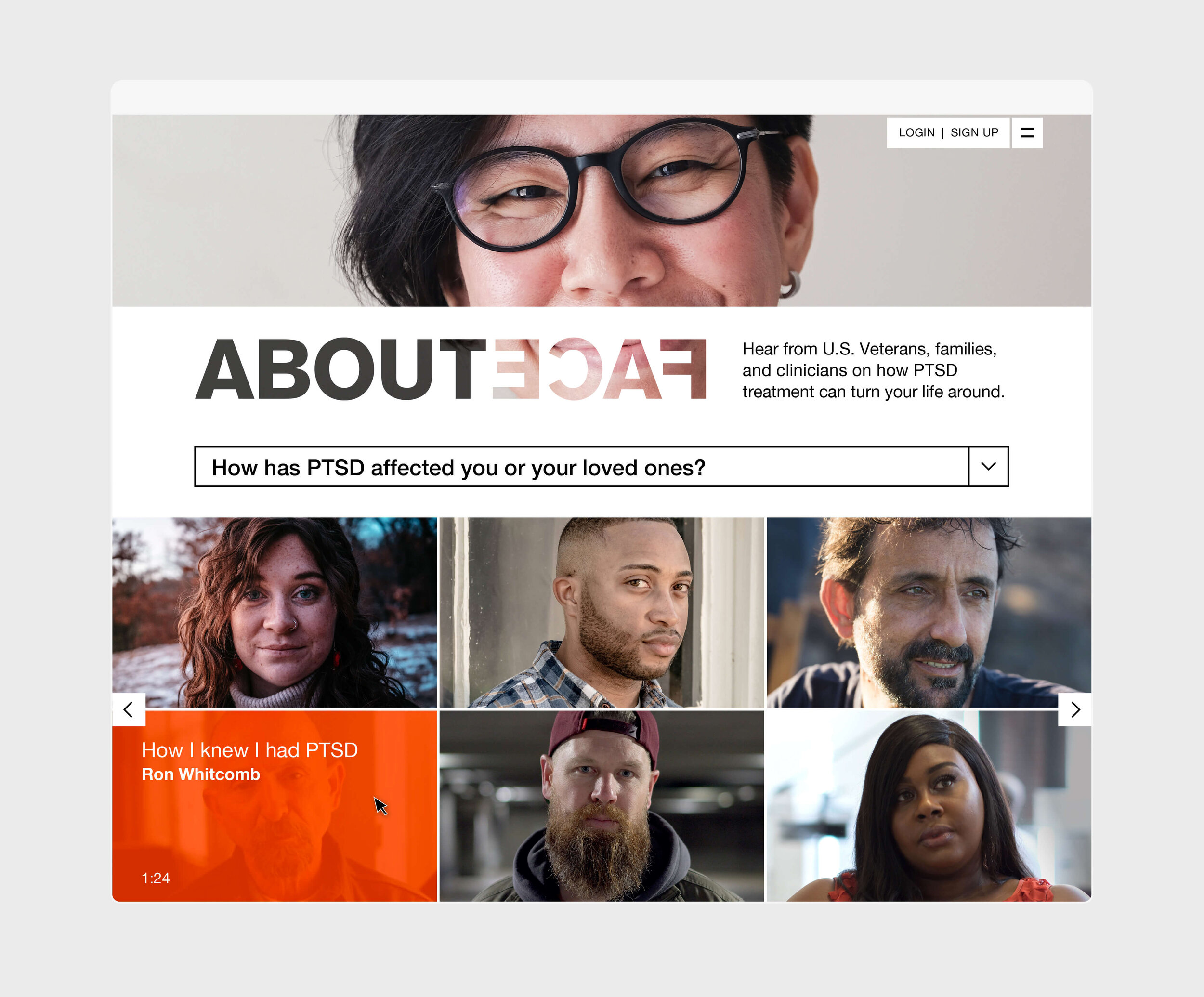


The Face of PTSD, is like you and me. To echo the themes of visibility and connection, we designed the website around a grid of veteran portrait videos—putting real faces and stories at the center of the experience. The homepage logo served as a dynamic window, rotating through different faces each time the page reloaded. A prominent feature of the site was a searchable library of frequently asked questions and key topics—allowing veterans to quickly find information that spoke directly to their concerns.
Turn to your truth. We extended the identity through compelling visual storytelling—using two-sided portrait imagery in online banners to depict the moment of transformation. Each featured the same veteran facing in opposite directions, symbolizing a turn toward one’s truth, and the courage it takes to confront PTSD head-on. The concept visually reinforced the campaign’s core message: healing starts with acknowledgment.
We also proposed a mobile app that would provide 24/7 access to mental health resources and one-on-one counseling—offering veterans a discreet, immediate way to connect with support whenever they need it most.
It’s About Relationships. We created a poster series featuring real veterans living with PTSD, each one highlighting how trauma can affect interpersonal relationships—with partners, friends, family, or fellow service members. By centering vulnerability and connection, the series underscored a key truth: healing doesn’t happen alone—it happens in relationship.
It’s about publishing success stories. To deepen engagement, we proposed a quarterly print publication titled It’s About—featuring personal stories, practical tips, and accessible resources. Designed for veterans, families, and caregivers, the magazine extended the campaign’s reach beyond the screen. Complementary postcards served as quick, tangible handouts at clinics and VA centers, ensuring that even those without digital access could connect with the message.
The Faces of Freedom. As part of the extended design system, we created a second poster series built around a key graphic element: the inverted “F” from the campaign logo. Used as a bold grid structure, the form provided natural counterspaces to house the logotype and accompanying messages. Each layout paired this visual treatment with a veteran’s portrait—reinforcing themes of identity, strength, and transformation.
“Through the AboutFace videos, viewers meet Veterans and hear how PTSD affected them and their loved ones. But most importantly, visitors to this website can also learn the steps to gain control over their lives.”
— Former Under Secretary for Health, Dr. Robert Petzel
Face to Face. Social media presented a powerful opportunity to expand the campaign’s impact. We conceptualized a prototype for a dedicated app where veterans could connect directly with one another—building a peer-to-peer support network rooted in shared experience. Users could identify their military branch, customize their profiles, and foster community across divisions. The app’s logo, formed by two mirrored “F”s creating an “A,” subtly tied the new platform back to the core identity of About Face—symbolizing connection, solidarity, and strength through community.

